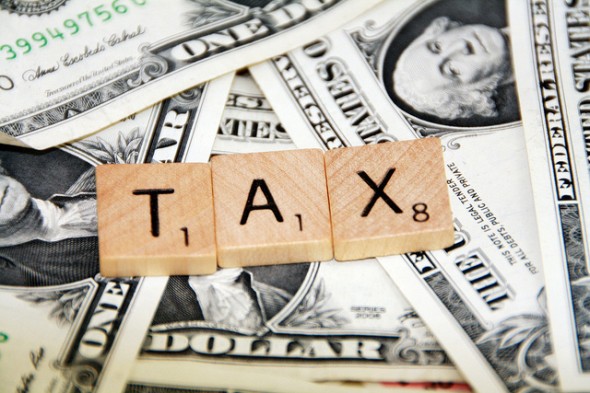Federal Tax Reform Could Unfairly Impact Oregon Utility Customers
Posted on December 13, 2017 by Will Gehrke
Tags, General Interest

If you’ve been following the news recently, you’re probably aware that Congress is considering making sweeping, systematic changes to the taxation structure of the United States. The proposed bill, “Tax Cuts and Jobs Act of 2017” is an attempt by Congress to simplify the rate of taxation for individuals and businesses. The bill will change the federal tax code by eliminating several tax deductions and by lowering tax rates for Individual and Corporate Income.
A reduction in the corporate income tax rate, in particular, could have substantial impacts on the utility sector and customer rates. How, you might ask? Well first, you have to look at why Congress is changing the corporate tax rate. The current federal corporate income tax rate is 35% of a corporation’s income. This rate is higher than the average tax rate for corporate income in developed countries. The US tax code is unique in that it taxes the profits of American-owned foreign subsidiaries. In a bid to reduce their overall tax liability, several large American corporations have conducted tax inversion. Tax inversion, relocating a corporation’s headquarters to a lower-tax country, allows companies to legally avoid paying American corporate income tax. The Tax Cuts and Jobs Act of 2017 will lower the corporate tax rate from 35% to 20%, in an effort to align the corporate income tax rate with other developed countries and to avoid losing additional tax revenue from tax inversion.
In CUB’s opinion, a reduction in tax rates presents a problem for utility customers. On one hand, since customer rates cover utility taxes, lowering taxes should reduce rates. On the other hand, the federal government generally prevents some corporate tax benefits (such as accelerated depreciation) from being passed through to customers. Here’s why: when utilities set their rates they include in their assumptions what is called a “stand-alone, normalized” tax liability, meaning that the consumer is charged based on what that specific utility is expected to pay in subsequent years’ taxes using normal depreciation lives for capital investments. However, the federal government allows utilities to assess their tax liability using the company’s (or parent company’s) full holdings and write-off investments on an accelerated basis. This results in allowing the utility to collect more from consumers for taxes in any given year than the company actually pays. Rather than returning this money to the consumer, the utility is allowed to hold on to this amount over a designated period of time and results in what is called accumulated deferred taxes.
As currently written, the tax bill includes language that requires states to “normalize excess deferred accumulated tax balances”. The normalization process would spread the credit of excess tax revenue to both current and future customers. This means, that 15% of accumulated deferred taxes (that’s right – the utility has already collected from you via your rates) is no longer owed. Moreover, because the credit can be spread to hypothetical “future customers” it is unlikely that current customers will ever see a credit to their bill. Importantly, tax issues of this nature are presently decided by state utility regulators as part of rate cases. CUB believes that state governments should continue to regulate what to do with excess tax revenue.
The National Association of State Utility Advocates (NASUCA) is an association whose member organizations include CUB and other state utility consumer advocates. NASUCA recently sent a letter to Congress expressing concerns about the reduction in the corporate income tax rate and its effect on consumer ratepayers. The letter references a resolution adopted at NASUCA’s annual membership meeting on November 12 (attended by CUB staff attorney Liz Jones) that says that ratemaking associated with taxes should happen at the state, not the federal level and that all overpaid tax money should be returned to customers. You can read the full text of the NASUCA letter here.
To keep up with CUB, like us on Facebook and follow us on Twitter!




12/13/17 | 0 Comments | Federal Tax Reform Could Unfairly Impact Oregon Utility Customers